Reasons Why You May Lose Hair After Childbirth, and Some Ways You Can Take Care of It
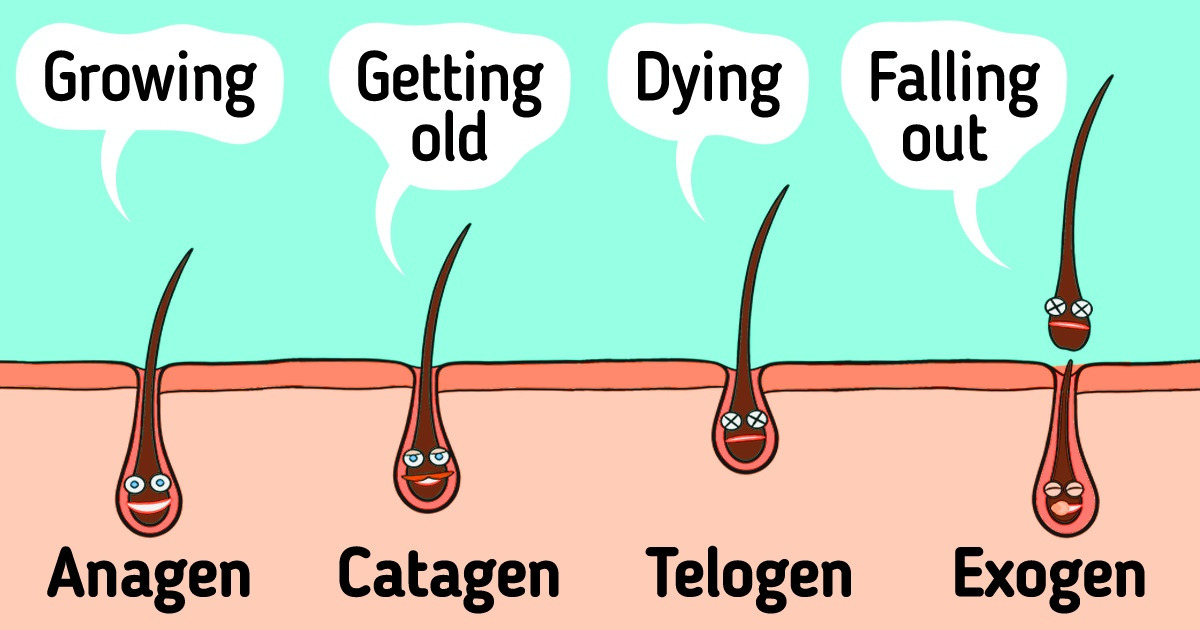
If you’ve just become a mother and are experiencing noticeable hair loss, don’t worry. This is normal and, above all, temporary. You should try to identify the causes of excessive hair loss and follow a series of recommendations to avoid or prevent it.
5-Minute Crafts will explain the causes of this hair condition and give you some tips to get your hair back to normal as soon as possible. Remember to consult your doctor or dermatologist for a proper diagnosis and treatment.
The stages of hair growth
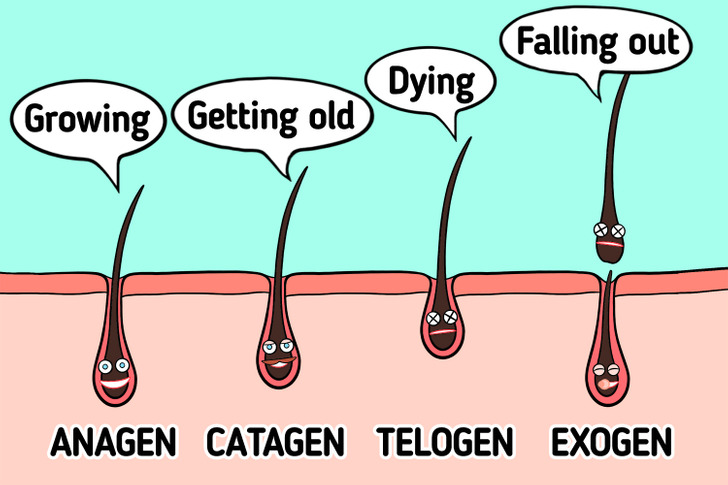
- Anagen: This is the growing stage. The hair follicles enhance hairs to come out of your scalp, which will keep on growing until you have them cut or they fall out.
- Catagen: This is the transition stage. It lasts around 10 days. Hair follicles become smaller and hair growth slows down.
- Telogen: This is the resting stage. It lasts about 3 months. Hairs stop growing, but it doesn’t fall out.
- Exogen: This is the shedding stage where hair falls out from the scalp. It lasts around 2 to 5 months, and it’s completely normal to lose between 50 to 100 hairs a day as new hairs start growing in their place.
Why does hair fall out after childbirth?
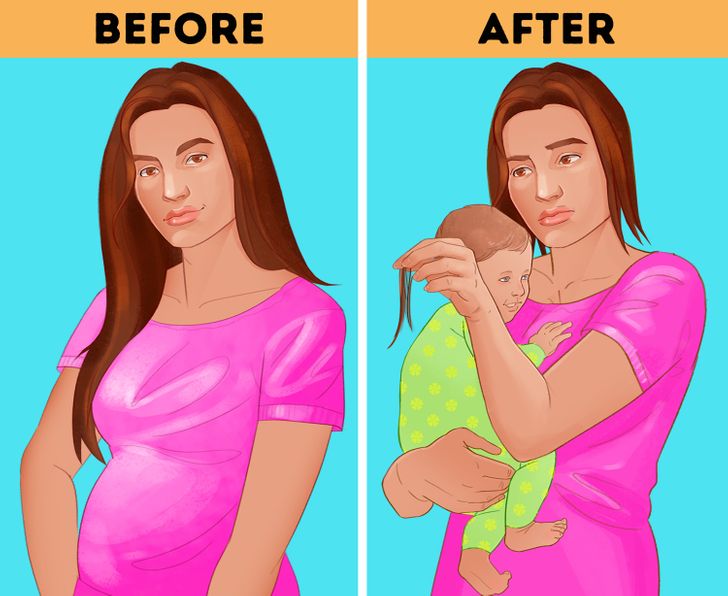
Some moms-to-be experience thinning or hair loss during pregnancy or in the months immediately following delivery. This is known as telogen effluvium and can be caused by hormones, stress, or medical conditions that accompany pregnancy.
● The hormonal change produced during pregnancy can cause the number of hair strands falling out to be delayed and reduced. After delivery, cycles become synchronized, and the shedding of extra hairs and abundant hair loss begins. This process is expected to last for about 2 to 4 months after the birth of the baby.
● Iron deficiency during gestation can cause various symptoms, such as hair loss, lack of concentration, fatigue, and irritability. Pregnant women are at an increased risk of developing iron deficiency anemia, which may be related to alopecia, telogen effluvium, and diffuse hair loss.
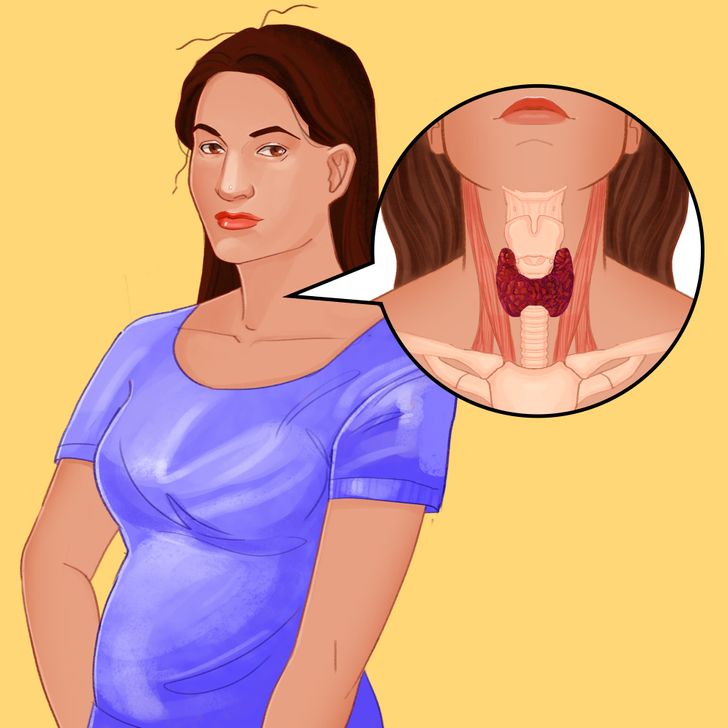
● Thyroid disorders, such as hyperthyroidism or hypothyroidism, are common diseases during pregnancy. And thyroid hormones play an important role in the growth of hair follicles. Thus, excessive hair loss is one of the symptoms related to thyroid problems during and after pregnancy.
● Other causes include conditions that can occur in a person no matter if they’re pregnant or not. One example is androgenic alopecia, which is characterized by hair loss driven by hormonal imbalances.
Remedies
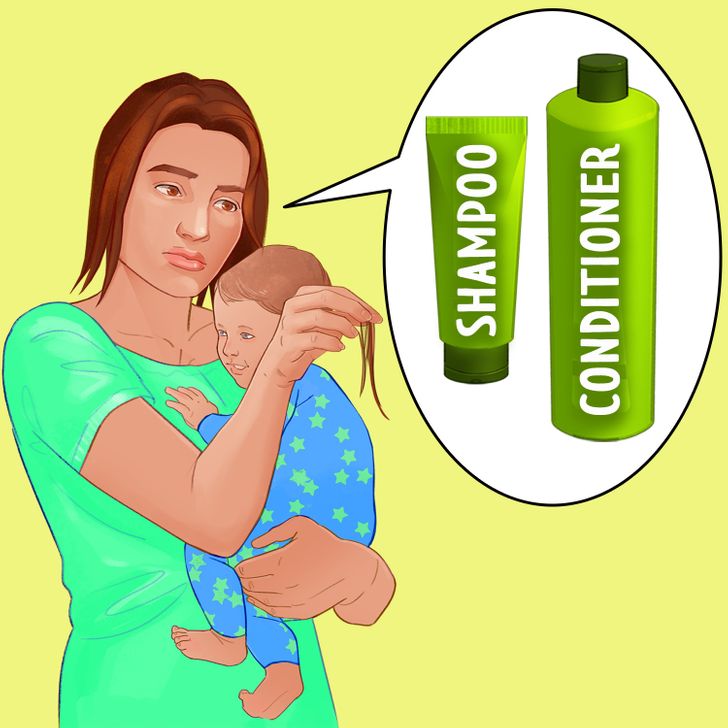
If your hair falls out too much in the months after giving birth, you can follow some recommendations to help it recover.
✅ Use a shampoo that adds volume. These products contain ingredients such as proteins, which coat the hair, making your “mane” look fuller.
✅ Avoid “conditioner shampoos” as they can weigh hair strands down and leave them without texture.
✅ Use conditioners for fine hair. These have lighter formulas that don’t weigh hair down.
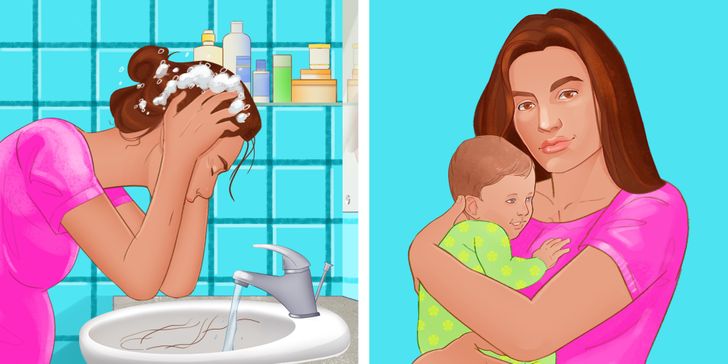
Prevention
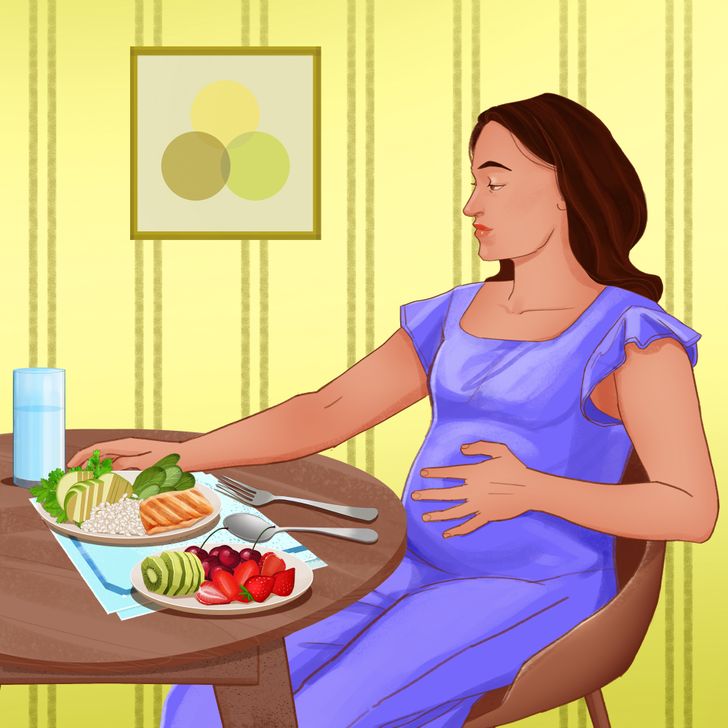
There are some tips to prevent hair loss. However, it all depends on what causes your hair to fall out. You can try the following:
✅ Follow a healthy, balanced diet high in protein, iron, and other important nutrients.
✅ Ask your doctor or gynecologist which vitamins and supplements are best for you and your baby.
✅ Get a clinical checkup or lab tests to determine what treatment your body needs. You may need to increase vitamin levels or regulate hormone levels.
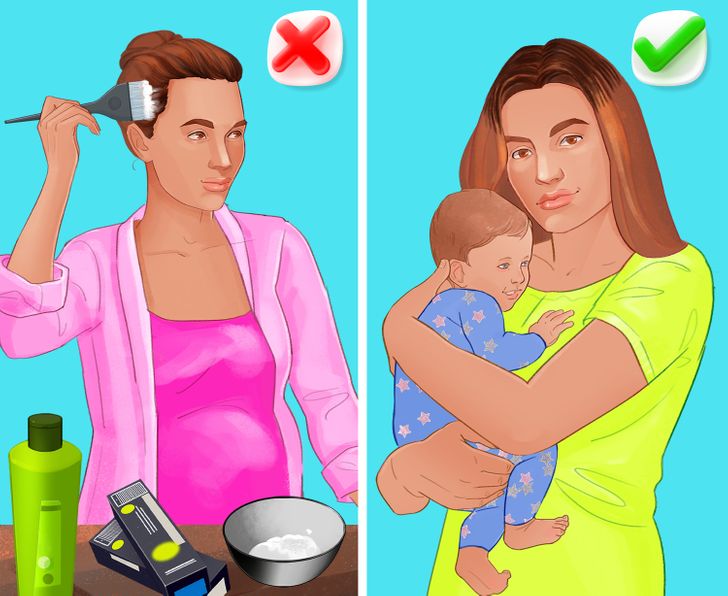
❌ Don’t use chemical dyes during pregnancy. This won’t make your hair fall out, but it can cause problems for your baby when he or she is born.
❌ Omit tight braids, buns, ponytails, and other hairstyles that can pull on your hair.
❌ Avoid pulling or tugging on your hair too hard while detangling it.
✅ Let your “mane” rest from aggressive treatments, such as using hot rollers, curling irons, or perming agents.